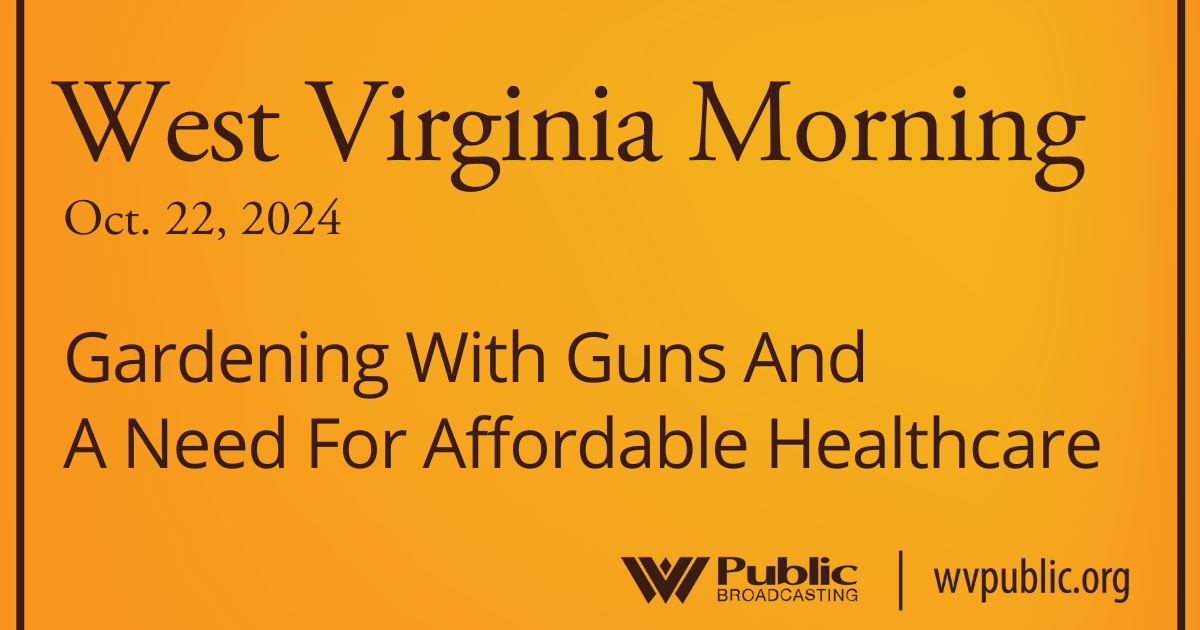Remote Area Medical (RAM) collaborated with West Virginia Health Right to set up a free, two-day clinic Oct. 21 and 22.
RAM works on a Community Host Group model, meaning, a local group reaches out to their organization for a visit, but must provide support to the non-profit during the duration of their stay.
Angela Settle is the CEO of West Virginia Health Right, based in Charleston, West Virginia.
“West Virginia Health Right serves the underserved, and it is a free and charitable clinic every day, 365 days a year,” Settle said. “But this is basically doing that on steroids over two days. And we have to get all the volunteers, raise all the money to support it, you know, to pay for the rooms for their staff to feed all the volunteers, you know, things like security and porta potties and all that kind of stuff we are responsible for doing as a community host partner.”
This is not the first time West Virginia Health Right has teamed up with RAM to provide health care to those in need. The first clinic was set up in Elkins after the 2016 flood.
“The next year, it moved to the Bible Center School, just because it’s a nice, you know, bigger location and kind of more central to southern West Virginia. And we stayed there and had one every year, I can’t tell you how many we had,” Settle said. “I’d say probably seven or eight.”
According to RAM clinic coordinator Brad Hutchins, their model works well in West Virginia because it meets patients where they are, literally and figuratively. All services are free and no ID is required.
“Because honestly, it doesn’t matter, at least not to, not to us,” Hutchins said. “If a patient comes in and they have a need, if we have the capacity to serve them, that’s what we’re there to do. That’s what the volunteers sign up for. So ultimately we just come and dedicate that amount of time to see as many patients as that time allows.”
Due to time constraints, patients of the RAM clinic should be prepared to choose between dental and vision services.
“You know, so, RAM we see that, you know, we’re not the solution, of course, but we are a resource that’s able to bridge the gaps and bring needed vision, medical or dental services, to these, to these areas that are underserved,” Hutchins said.
Services available at the free RAM clinic include dental cleanings, fillings, extractions and X-rays. Services also include eye exams, eyeglass prescriptions, eyeglasses made on-site, women’s health exams and general medical exams.
Starting January 1, 2014, West Virginia expanded Medicaid under the Affordable Care Act. Under the expanded eligibility guidelines, adults aged 19 to 64 are eligible for Medicaid with a household income up to 138 percent of the poverty level.
For a single adult in 2023, that amounts to $20,120 in total annual income.
Settle praised West Virginia’s expansion of Medicaid but said there are still a lot of people out there in need who cannot qualify.
“We know that expanding Medicaid was wonderful, that helped, but there’s still a lot of people out there in need,” Settle said. “Because, you know, there’s a lot of working poor, and I mean that lovingly – people that work every day, but maybe make too much for Medicaid, but they don’t qualify, or the benefits that they qualify for are too pricey.”
Medicaid enrollment in West Virginia is up 80 percent since 2013 but is expected to continue to decline as disenrollments continue after a three-year pause for the COVID-19 pandemic.
During the COVID-19 pandemic, benefits were expanded, and restrictions loosened to help immediate needs across the country. Now, those benefits have run out.
“People are deciding between health care, and the basic necessities like food, utilities, et cetera,” Settle said. “So we want to be instrumental in removing that. We want to make sure that people have access to health care.”
An integral part of continuing health care is follow-up appointments. Hutchins says West Virginia Health Right will help with care plans.
“And she provides her organization a lot of support, not only throughout the planning, and execution, but also they have a big hand in the follow up care process as well,” Hutchins said. “So we don’t actually provide any services that we can’t first align the follow-up care plan for because it benefits no one for us to come in and identify an issue with the patient without offering some type of solution.”
Settle said Health Right aims to be a source of resources and information to the public it serves.
“Well, we don’t want to be a dead end, you know, if somebody found out that they have an issue that day, we want to certainly, you know, be a follow-up source for them, where they can come to and get that rectified,” Settle said. “It’s not enough to just see them that one day, we want to make sure people have follow-up care.”
Appalachia Health News is a project of West Virginia Public Broadcasting with support from Charleston Area Medical Center and Marshall Health.
